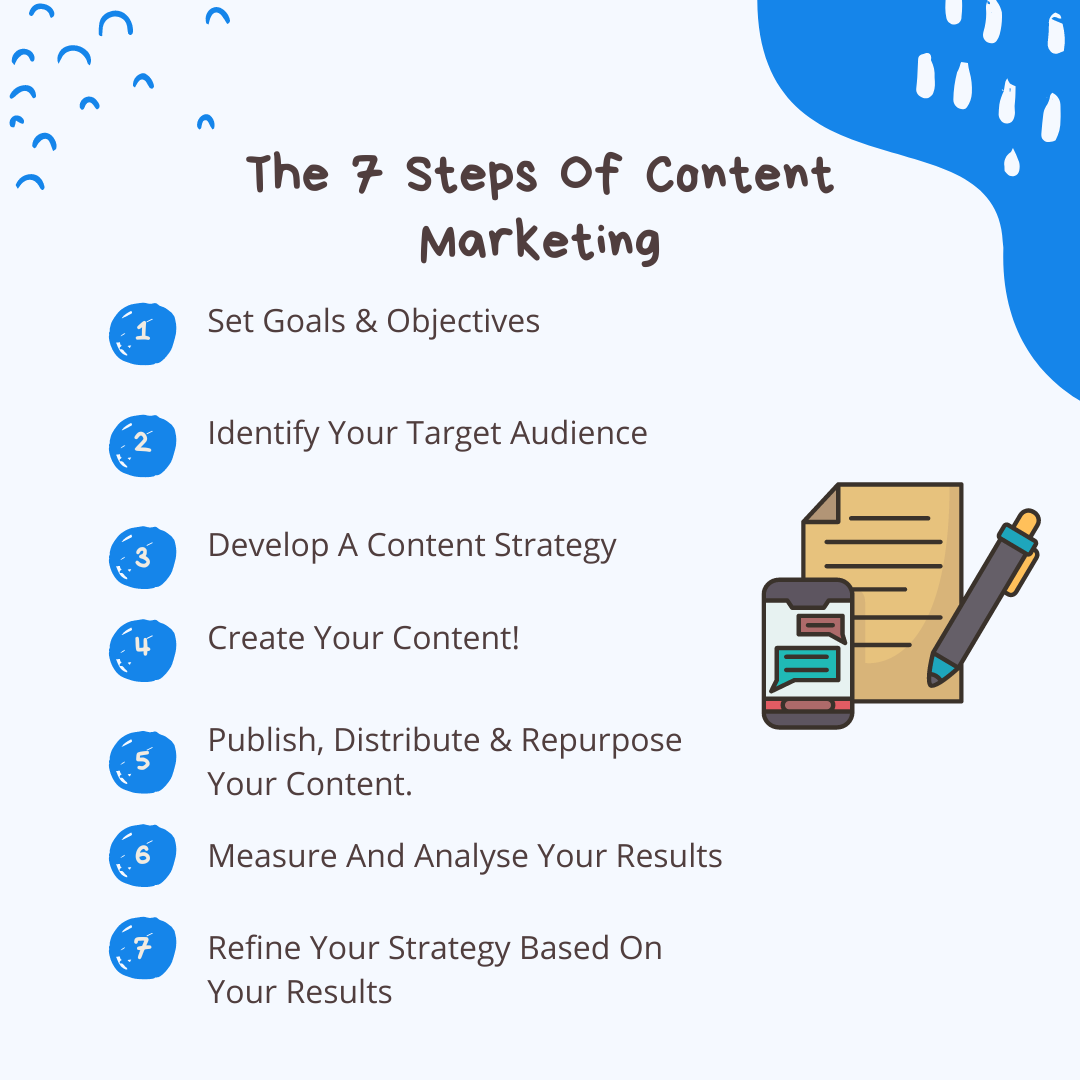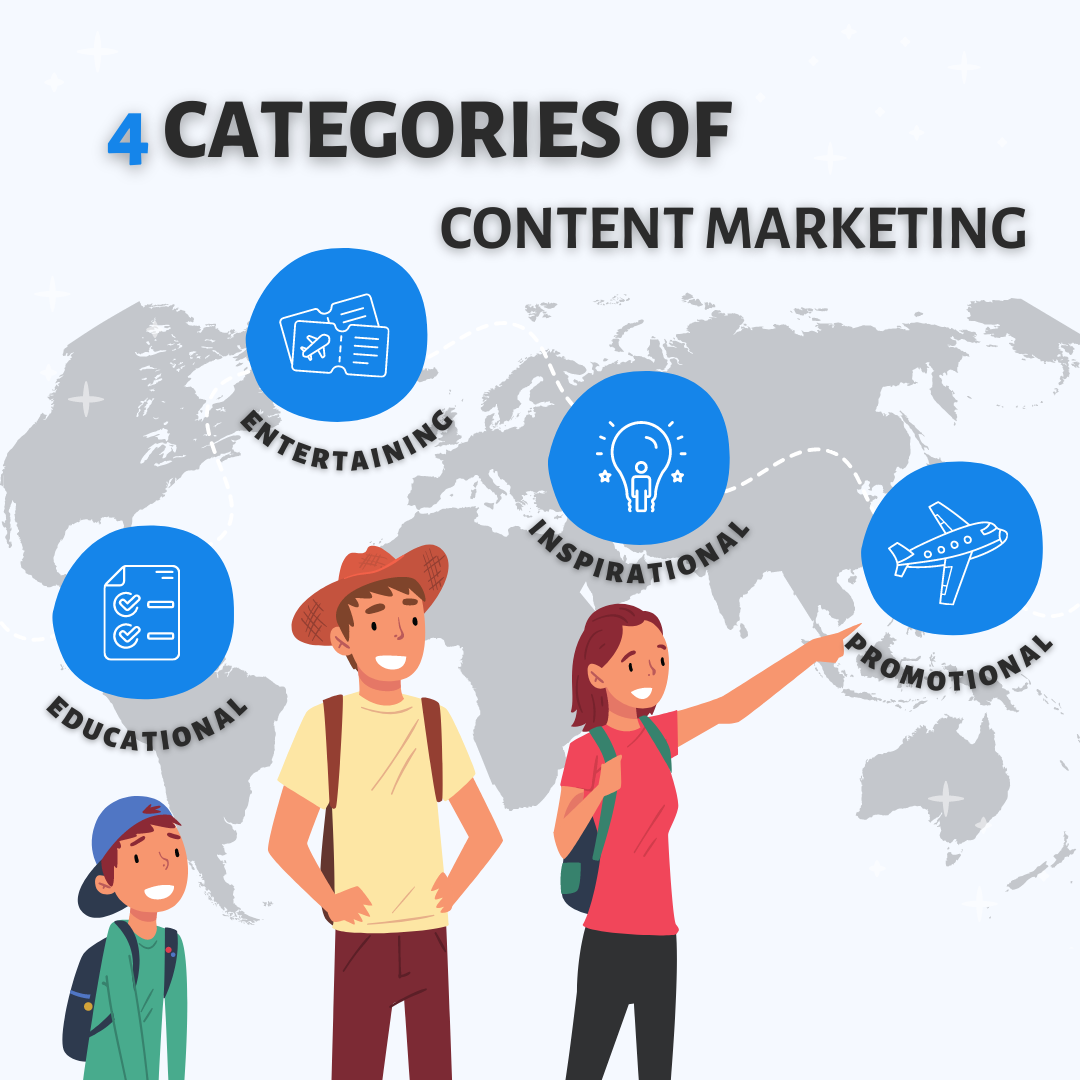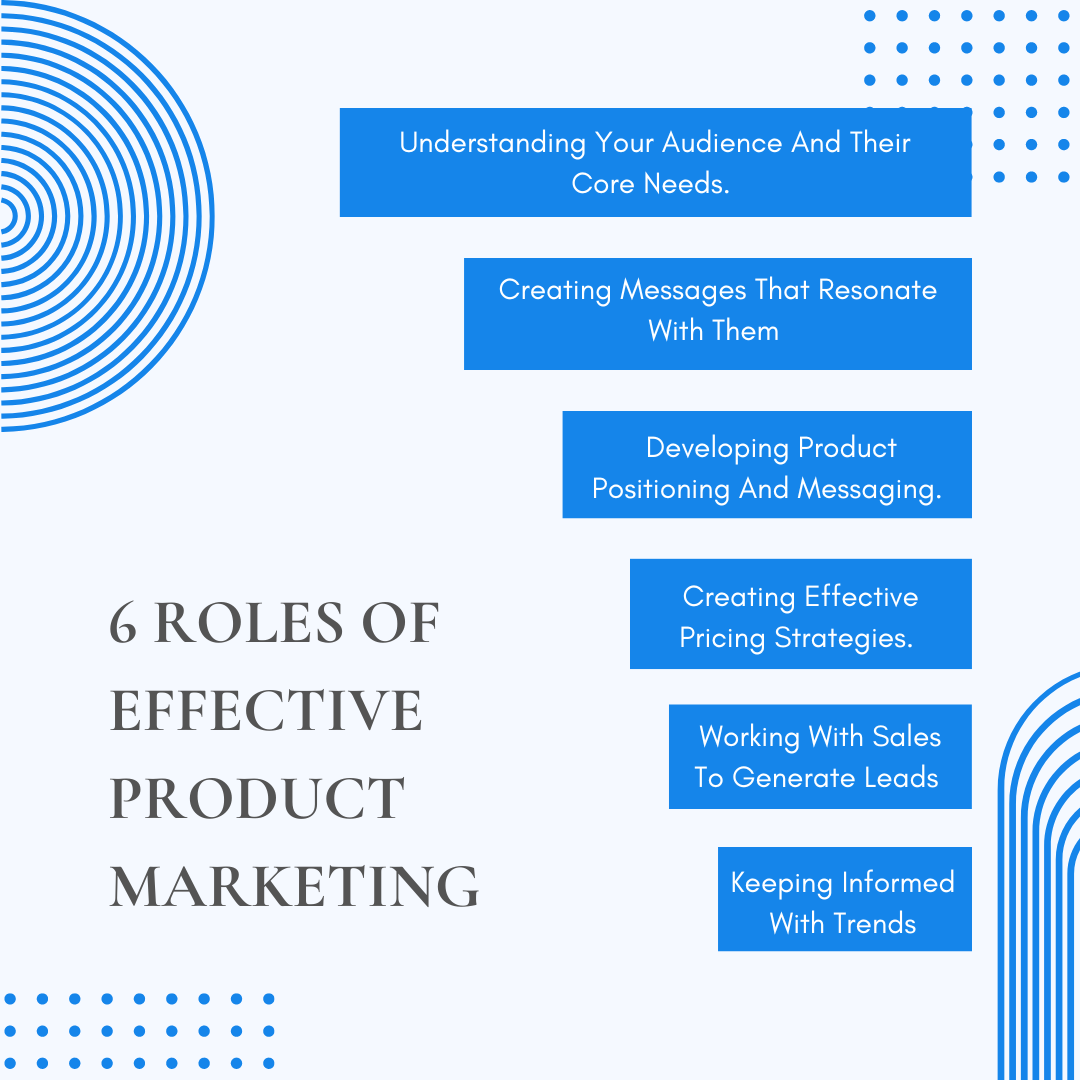In our current world of online commerce, businesses are constantly looking for fresh ways to effectively reach their target audience.
Two of the primary marketing strategies that have gained great popularity over the last 5 years are the mediums of content marketing and product marketing.
While both of these strategies aim to drive revenue growth for a business – the approach and objectives are actually quite different.
In this Get-FoundGoogle guide – we will discuss the key differences between content and product marketing, what are the advantages of each, and how you can utilise them to master your overall digital marketing strategy.
If you’d like us to do all the heavy lifting for you – get yourFREE digital marketing consultationwith one of our marketing team experts!

What Is Content Marketing?
Content marketinginvolves creating and releasing valuable/relevant content in order to attract and engage with your target audience.
The main objective of content marketing is to build brand awareness, establish brand authority and appeal to potential customers at the ‘top of the funnel’
Ultimately, content marketing is a brilliant way to meet users where they are at and guide them towards a profitable business conversion.
The content can be in various forms such as blog posts, videos, social media reel, white paper reports, infographics, TikTok shorts and more.
What Are the 7 Steps Of Content Marketing?
The seven steps of content marketing are as follows:
1. Establish Your Goals And Objectives
This involves defining the purpose and goals of your content marketing strategy.
You need to determine what you want to achieve through your content – whether it is to increase brand awareness, generate leads, drive sales, or establish thought leadership in your industry.
Your ‘why’ behind your content will determine what kind you will create and the underlying message underneath.
2. Identify Your Target Audience
It is essential to understand who your ideal customer is, what their needs are, their interests, and their pain points.
This key information will help you create content that resonates with your target audience and addresses their needs.
3. Develop A Content Strategy
Now you have your why – you’ll need a plan for how you will create, publish, and distribute your content.
Will you create blog posts? videos? infographics? social media posts? Or podcasts?
How often will you publish them? Where is this traffic meant to go? A website? A landing page? Will it compliment a paid searchstrategy?
These are essential questions to ask before firing away creating content – that might have no end result…

4. Create Your Content
It’s time to put your research into practice!
If it’s a blog, you will want to ensure you are optimising your content for SEO.
If it’s social media, you will want to ensure the content is optimised for engagement and user experience.
5. Publish, Distribute & Repurpose Content.
This involves sharing your content through various channels, such as social media, email marketing, and content syndication platforms.
You need to ensure that your content is easily accessible and shareable.
6. Measure And Analyse Your Results
This involves tracking the performance of your content marketing efforts and analysing the data to determine what is working and what is not.
You need to track metrics such as website traffic, engagement, and conversion rates.
If your content isn’t bringing in any results, it’s time to step back to point 2 / 3.
7. Refine Your Strategy Based On Your Results
This involves using the insights from your data analysis to improve your content marketing strategy.
You may need to adjust your messaging, audience research and user experience to better align with the needs and preferences of your target user.

What Are The Key Advantages Of Content Marketing?
It is essential to ask yourself, or the agency you work with, the right questions.
This is especially true when formulating a success plan with your content..
What are the key advantages of content marketing?
The advantages of content marketing include:
Increased Brand Awareness
Content marketing can help you increase your brand’s visibility and awareness with content that resonates with your target audience, answers their questions and solves their problems.
This is an excellent way for users to discover your brand early on in their customer journey!
Improved Brand Credibility And Authority
By creating high-quality, informative content, you can establish your brand as a thought leader in your industry.
Search engines reward quality content with high rankings.
Users reward quality content by becoming subscribers and returning visitors.
Higher Customer Engagement And Loyalty
Content marketing can help you engage your target audience and build a loyal customer base by creating content that addresses their needs and interests
Increased Website Traffic And Search Engine Rankings
If you are writing blogs and articles – by creating high-quality content that is optimised for search engines, you can be rewarded with high rankings and a steady boost in quality organic traffic.
Here are 5 things that will help a lot:
- Conducting thorough research.
- Optimise your Metadata for your target keywords
- Understand the search intent of your target keyword.
- Invest time studying and implementing the correct on-page SEOstrategies.
- Invest time conducting effective outreach to obtain high quality backlinks from relevant domains.
Improved Lead Generation And Conversion Rates
Who knows?
Maybe a searcher has been doing some product research for some time.
They’ve ready multiple articles and now come across yours.
The information you share has the potential to push them over ‘the buying’ line and potentially purchase from your products/services!
By creating content that addresses the needs and pain points of your target audience, you can generate more leads and improve your conversion rates.
Cost-Effective Compared To Traditional Advertising Methods.
Content marketing can be a lot more cost-effective than traditional advertising methods, such as TV or print ads, because it relies on creating valuable content rather than paying for ad space.

What Are The 4 Main Categories Of Content Marketing?
Your content should fall into 1 of these 4 categories (depending on the purpose it’s trying to serve)
So, what are the 4 main categories of content marketing?
The four main categories of content marketing are:
Educational Content – aims to inform and educate the audience.
This type of content aims to inform and educate the audience on a particular topic or subject. It can include blog posts, whitepapers, e-books, webinars, and how-to guides.
Entertaining Content – aims to entertain and engage the audience.
This type of content aims to target the audience by providing them with entertaining and enjoyable content.
It can include videos, social media posts, memes, and quizzes.
Inspirational Content – aims to inspire and motivate the audience.
This type of content aims to inspire and motivate the audience by sharing stories, quotes, or images that evoke positive emotions and encourage action!
Promotional Content – aims to promote a product or service
This type of content aims to promote a product or service and encourage the audience to take action, such as making a purchase or signing up for a newsletter.
It can include product demos, customer testimonials, and special offers.
What Is Product Marketing?
Product marketingis a strategy that focuses on promoting and selling a particular product or service.
The main objective of product marketing is to generate leads, convert leads into customers and increase revenue.
Product marketing involves understanding the target audience, creating marketing messages, and promoting specific products through various channels.

What Are The Roles Of Product Marketing?
The roles of product marketing include:
Understanding Your Audience And Their Core Needs:
The first step in product marketing is to research and understand the target audience and their needs, preferences, and behaviours.
This information is used to create marketing messages that resonate with the audience and address their pain points.
Creating The Right Messages:
Product marketers use their understanding of the target audience to create compelling marketing messages that effectively communicate the value proposition of the product or service.
Developing Product Positioning:
Product marketers are responsible for developing the product’s positioning and messaging, which is the way the product is presented to the target audience.
This includes developing key messages, taglines, and other marketing collateral.
Creating Effective Pricing Strategies:
Product marketers work closely with the pricing team to develop pricing strategies that are competitive and profitable.
They must consider market trends, competitor pricing, and the value proposition of the product when developing pricing strategies.
Working With Sales To Generate Leads & Close Deals:
Product marketers work closely with sales teams to generate leads and close deals.
They provide sales teams with the marketing collateral and messaging needed to effectively sell the product.
Product marketing can work brilliantly alongside a local SEOstrategy.
Staying Informed About Industry Trends And Competitors:
Product marketers are responsible for staying informed about industry trends and competitors.
They conduct market research to identify new opportunities and competitive threats, and use this information to inform their marketing strategies.

What Are The Key Advantages Of Product Marketing?
The advantages of product marketing include:
Increased Product Visibility And Awareness:
Product marketing can help increase product visibility and awareness by creating marketing messages that effectively communicate the value proposition of the product.
Improved Customer Engagement And Loyalty:
Product marketing can help improve customer engagement and loyalty by creating marketing messages that address the pain points and needs of the target audience.
Higher Lead Generation And Conversion Rates:
Product marketing can help generate more leads and improve conversion rates by creating compelling marketing messages and collateral that effectively communicate the value proposition of the product.
Increased Revenue And Profitability:
Effective product marketing can help increase revenue and profitability by driving more sales and improving the pricing strategy of the product.
Are Product Marketing And Content Marketing at Odds With Each Other?
No, product marketing and content marketing are not at odds. In fact, they complement each other.
Product marketing provides information about the product, while content marketing provides educational, entertaining, and inspirational content that helps build brand awareness and authority.
If you can utilise both of these strategies – you have the potential to target customers at both the top, middle and bottom of the funnel!
Together, they create a holistic marketing strategy that can lead to increased sales and revenue.
Product marketing Vs Content Marketing: So, What’s The Difference?
The primary difference between product marketing and content marketing is the focus of each strategy.
Product marketing focuses on promoting and selling a specific product or service, while content marketing aims to create valuable and relevant content that attracts and engages a target audience.
Product marketing typically involves creating marketing messages that showcase the features and benefits of a product or service, developing pricing strategies, working with sales teams to generate leadsand close deals, and conducting market research to stay informed about industry trends and competitors.
On the other hand, content marketing involves developing a content strategy, creating various types of content, publishing and distributing the content, measuring and analysing the results, and refining the strategy based on the results.
Despite these differences, product marketing and content marketing can work together to create a comprehensive marketing strategy that achieves both short-term and long-term goals.
By combining the two strategies, businesses can promote their products or services while also providing valuable content that resonates with their target audience.

Conclusion
In conclusion, content marketing and product marketing are two essential marketing strategies that businesses can use to promote their products or services effectively.
Both strategies have their unique advantages and approaches, and they are not at odds with each other.
Instead, they complement each other and work together to create a holistic marketing strategy that can increase sales and revenue.
By understanding the differences between these two strategies and using them effectively, businesses can achieve their marketing goals and build a strong brand in today’s competitive marketplace.
If you need help with either, one of your strategies – book a call with the Get-Found team today!👇🏽



